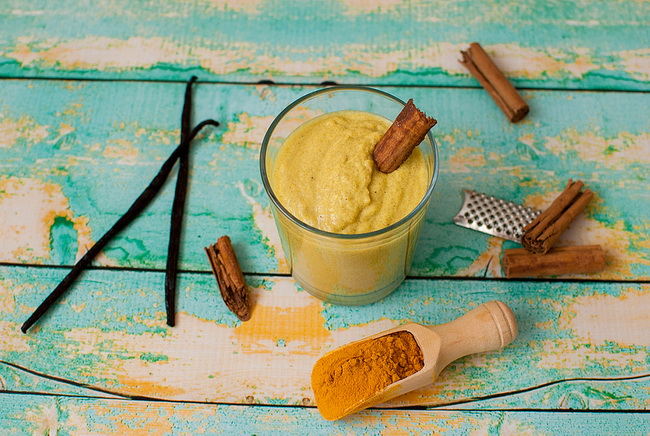- Make It Yourself Lavender Heart-Shaped Bath Bombs!
- 20 Things You Never Knew About “Down There”
- 12 Best Foods For Those Suffering From Arthritis Pain
- 12 Personal Hygiene Mistakes Almost Everyone Makes (Mom Never Told You About #4!)
- 15 Medicinal Plants And Herbs From The Cherokee People
- 12 Mind-Blowing Benefits Of Drinking Coconut Water During Pregnancy
- 12 Outstanding Winter Foods That Won’t Fatten You Up Like A Christmas Turkey
12 Ways To Prevent Dementia And Alzheimer’s (#5 Is Our Fav!)

Photo credit: bigstock.com
Dementia and Alzheimer’s disease is a chronic, progressive brain disorder that, over time, breaks down and destroys the brain cells as well as the neurons that connect the brain cells to each other.
This disease starts off slowly but gains momentum over time. Alzheimer’s disease is the most common form of dementia. It leads to a decline in memory, behavior, as well as mental capabilities. Alzheimer’s makes up between 50 and 80 percent of all cases of dementia.
Experts do not fully understand that exact cause behind Alzheimer’s and even more scientists disagree as to the root cause. There are three major risk factors, however, that everyone agrees on: genetics, family history, and age. Women are much more likely to have Alzheimer’s than men. Also, those who have had head injuries or trauma appear to have a greater risk.
The early signs of Alzheimer’s are memory or recall problems. Every day common tasks, such as brushing the teeth or talking on the phone, suddenly become difficult and confusing. Over time, Alzheimer’s patients forget who their family is, forget how to do everyday tasks, begin to experience hallucinations, and sometimes become violent.
There is no cure for Alzheimer’s. However, if you are at a higher risk, or if you would like to lower your risk, of developing Alzheimer’s, there are steps you can take that can prevent (or at least slow down the progression) dementia. Of course, these measures work best when used as early in life as possible.
Want to know how to lower your risk of this terrible brain disease? Keep reading for the 12 best ways you can lower your risk and prevent developing Alzheimer’s disease.
1. Smoking
Numerous studies have linked smoking with an increased risk of Alzheimer’s. There are numerous reasons to stop smoking, increasing your risk of Alzheimer’s is another one. Do whatever it takes to stop smoking. See your doctor, join a self-help group, and try herbs or chewing gum. Quitting smoking is one of the best things you could ever do for your health.
2. Coconut Oil
One study, published in the Journal of Alzheimer’s Disease, found that coconut oil weakens the effects of a peptide, called amyloid-B on cortical neuros in vitro. Amyloid-B is one of the known components that contribute a great deal to this disease. Coconut oil also contains medium chain triglycerides that can help to restore the lining of the nerves and improves cognitive skills. Use only cold pressed virgin coconut oil for the best overall health of your brain. Eat one or two teaspoons of organic coconut oil twice daily.
3. High Blood Pressure
Besides being linked to a higher risk of heart disease, heart attack, and stroke, many studies have shown a link between heart health and brain health. Those who develop high blood pressure in middle age are at an especially high risk of developing Alzheimer’s. It’s interesting to note that in old age, it is low blood pressure that has been linked to an increased risk of Alzheimer’s. Those who get treatment or make the necessary lifestyle changes to lower their hypertension have been shown to be less likely to develop dementia as they age.
Continue to Page 2

Photo credit: bigstock.com
4. Vitamin B12
Vitamin B12 is important for the neural functioning in the brain. A deficiency in this vitamin can cause various symptoms, including memory loss, which often take on the appearance of dementia. Unfortunately, consuming B12 for those who do NOT have a deficiency will not help those with Alzheimer’s. Avoid a deficiency in the first place! Eat foods that are rich in B12 such as eggs, milk, cheese, beans, poultry, fish, soy milk, and avocado. You can also take a B complex supplement. Speak to your doctor about the proper dosage for your condition.
5. Turmeric
Numerous studies show that turmeric can prevent or greatly slow the progression of dementia. Turmeric has powerful anti-inflammatory compounds which destroy the beta-amyloid plaque in the brain, which can prevent or delay Alzheimer’s. Turmeric also improves blood circulation to the brain, which improves cognitive function. Mix a tablespoon of turmeric powder in one glass of warm milk (sweeten with a bit of honey if you like) and drink once each day. Do not consume turmeric if you have gallstones.
6. Exercise
Getting regular physical exercise can help tremendously in the prevention of cognitive decline and dementia. The Journal of Alzheimer’s Disease published a study in 2011 which found that regular exercise had a positive neurophysiologic effect that helps to maintain normal brain function. Exercise, at any age, can improve brain activity. Just 30 minutes a day, five days a week, of walking, swimming, biking, or other types of activities is all it takes to help prevent Alzheimer’s disease.
Continue to Page 3

Photo credit: bigstock.com
7. Cinnamon
The Journal of Alzheimer’s Disease published a 2009 study finding that cinnamon helped to inhibit filament formation and tau aggregation, which are two markers of Alzheimer’s disease. Cinnamon is also known to improve cognitive function and memory by improving blood circulation to the brain. Diabetics are also at a greater risk for developing dementia and cinnamon is known to improve blood sugar levels. Add this wonderfully tasty spice to your cereal, oatmeal, coffee, and baked goods. You can also consume a supplement, but you must speak with your doctor for the proper dosage as an excessive amount of cinnamon can be toxic to the liver.
8. Brahmi
Sometimes called bacopa, brahmi is an ancient Indian herb that works as a terrific brain tonic with its powerful antioxidants. Brahmi also have neuroprotective effects on the brain. Studies have linked brahmi consumption with an improved cognitive function in elderly persons and those with Alzheimer’s disease. A typical dose is 2 teaspoons of juice taken twice each day. Talk to your doctor if a supplement might be right for you.
9. Almonds
Several studies have shown a link between the consumption of vitamin E and Alzheimer’s disease. Almonds are a great source of the type of vitamin E that the body absorbs best , alpha-tocopherol vitamin E. Almonds also contain omega 3 fatty acids, which are known to improve memory. Just one ounce of almonds each day can give you all the healthy brain support you need.
Continue to Page 4

Photo credit: bigstock.com
10. Ashwagandha
Ashwagandha, sometimes called Indian ginseng, is really good for your grey matter! The journal Pharmacology Research published a study in 2014 finding that this ancient herb has a positive effect in psychomotor performance and in cognitive tests among healthy subjects. Ashwagandha influences all aspects of brain function such as thinking, focus, memory, and concentration. Ashwagandha has anti-inflammatory agents and antioxidants that can act preventatively for dementia and Alzheimer’s. Speak to your doctor about taking an ashwagandha supplement.
SEE ALSO: Top 10 Ways You Can Avoid Dementia and Alzheimer’s Disease
11. Indian Gooseberry
This age old fruit can prevent and/or delay the onset of Alzheimer’s. Indian gooseberry, sometimes called amla, can inhibit beta-amyloids, the neural plaque associated with Alzheimer’s. This fruit is rich in vitamin C and other antioxidants that can improve mental functioning while it nourishes the brain. Indian gooseberry improves the central nervous system and is a terrific brain and nerve tonic. A typical dose is one to three teaspoons of Indian gooseberry powder, either with or without water, twice each day. You can also eat the fruit fresh or dried if you can find it!
12. Omega-3
Omega-3 fatty acids can be a terrific alternative treatment for dementia. Scientists at the University of California at Irvine found in a 2007 study that DHA (docosahexaenoic acid) one type of omega-3 fatty acid can help to prevent the development of Alzheimer’s disease. Omega-3 fatty acids can slow the growth of brain lesions that are hallmarks of this terrible neurodegenerative disease. You can consume more omega-3 fatty acids in your diet by eating fatty fish two or three times each week, flax seeds, olive oil, winter squash, beans, and walnuts. You can also take an omega-3 (fish oil) supplement that has at least 600 mg of DHA each day.
Extra Tips:
- Keep your mind mentally stimulated by learning new tasks, trying new things, and learning new skills
- Keep up a healthy social life
- Avoid processed foods and metal such as mercury and aluminum
- Getting 20 to 30 minutes of early morning sun exposure most days will give your body the vitamin D it needs that will improve brain function
- Keep blood pressure and blood sugar levels under control
- Maintain a healthy weight
References:
































